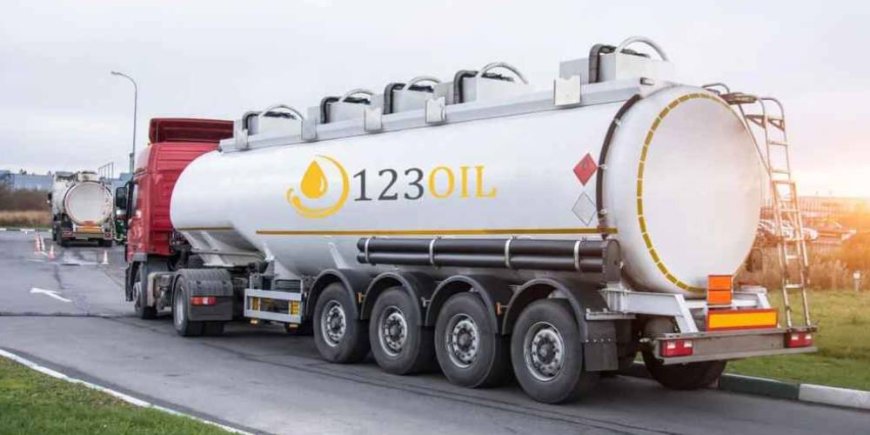Tips to Reduce Fuel Costs Without Compromising Efficiency

When it comes to running a business, the role of financial stability can't be overlooked. It is crucial not only to ensure operational efficiency but also to fulfill production demand and stay ahead of the curve. One of the most important costs that can be a major burden for any organization, especially those that rely on transport, machinery, or heating, is the fuel cost.
Fuel prices kept fluctuating. They are usually hired during peak seasons when the demand is high, increasing the financial burden. However, implementing some practical yet simple tips can help you reduce these costs without compromising the efficiency and work quality, saving you money and reducing your carbon footprint.
Here are some expert tips that can help reduce fuel costs without harming your productivity or workflow.
Choose a Reliable Fuel Supplier
One of the first steps to saving money is choosing the right supplier. Various companies are supplying different types of fuel all across the UK, but not all offer the same value. Many unreliable suppliers also exist who often charge higher or provide cheap, contaminated fuels.
Always choose a reliable company that offers consistent and high-quality red diesel, heating oil, and white diesel delivery at competitive rates. It will help you avoid last-minute purchases or paying higher prices when you're low on fuel, and also save time.
Order in Larger Quantities
Most companies offer extra discounts on bulk purchases. So, if your site or business can safely store larger amounts of fuel, consider ordering more at once instead of small deliveries throughout the month can help you reduce overall cost. It will not only help you reduce the number of deliveries and lower transport costs but also minimize disruptions and ensure the smooth running of machinery.
Store Fuel Properly
If you're storing fuel on-site, keeping it in the right conditions can make a big difference. Poor storage can lead to fuel contamination, leaks, or evaporation, leading to increased waste and cost. So, always keep tanks clean and well-maintained, tightly seal their lids, and place them in areas away from direct sunlight or high moisture. Moreover, inspect tanks regularly to notice early signs of damage. It will help you avoid leaks that can cost you far more in the long run than regular maintenance.
Train Drivers and Equipment Operators
Your workers play a big role in fuel usage. If your drivers or machine operators aren’t trained in efficient practices, they may be using more fuel than needed. Therefore, teaching drivers to avoid hard acceleration, reduce idling time, and follow proper gear shifting can make a significant difference. These changes don’t cost anything, but they can lead to real savings over time. It will also ensure your workers' and equipment safety and can extend the life of your vehicles.

Use Fuel-Efficient Vehicles and Equipment
Relying on outdated equipment and vehicles is one of the major causes of increasing fuel consumption. Latest models are often designed to use less fuel while delivering the same or better performance. So, upgrading equipment and vehicles can also save you money in the long run.
Maintain a Steady Supply Chain
Relying on last-minute fuel orders can cause problems. You might have to accept higher prices or wait longer for a delivery, especially during busy periods or poor weather. That’s why it's important to plan your orders ahead of time.
Building a steady relationship with your supplier, like 123 Oil, helps keep your fuel coming on schedule. High-quality fuel delivery from a dependable company can help you stay stocked and avoid emergency orders that often come with higher costs.
Reduce Unnecessary Trips
If your vehicles make too many small trips or follow inefficient routes, you may be using more fuel than needed. Route planning is a simple but effective way to cut costs without affecting your service. You can use tools or maps to plan the shortest and most fuel-efficient routes. Moreover, performing group tasks or deliveries together can also save both time and fuel.
Use Digital Tools for Better Planning
One of the most effective ways to keep a regular check on fuel consumption is the use of simple digital tools. From route planners to fuel tracking apps and fleet management systems, these tools are of various types that can help you plan better and reduce operational costs.
By tracking fuel usage, delivery times, and driving habits, you’ll have better insight into where your money goes. You can use these data analytics to make more informed decisions and cut down waste.
A Final Word
Fuel efficiency is necessary not only to reduce overall operational costs but also to reduce carbon footprint, stay compliant, and ensure environmental sustainability. Implementing these simple tips or tricks and connecting with a reliable supplier like 123 Oil can help you reduce fuel costs without compromising workflow or operational efficiency.
































































![https //g.co/recover for help [1-866-719-1006]](https://newsquo.com/uploads/images/202506/image_430x256_684949454da3e.jpg)
























![How Smart PMs Scale Their Careers in Any Org [TPG Live Recap]](https://tpgblog.com/wp-content/uploads/2025/06/2025-06-12-thumbnail-action.png?#)





















































